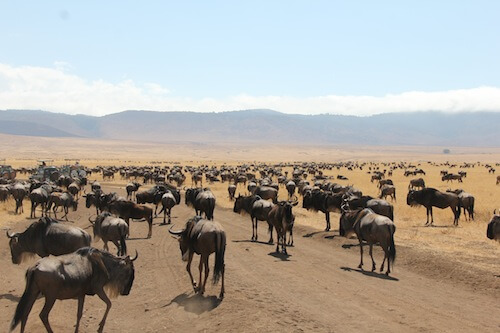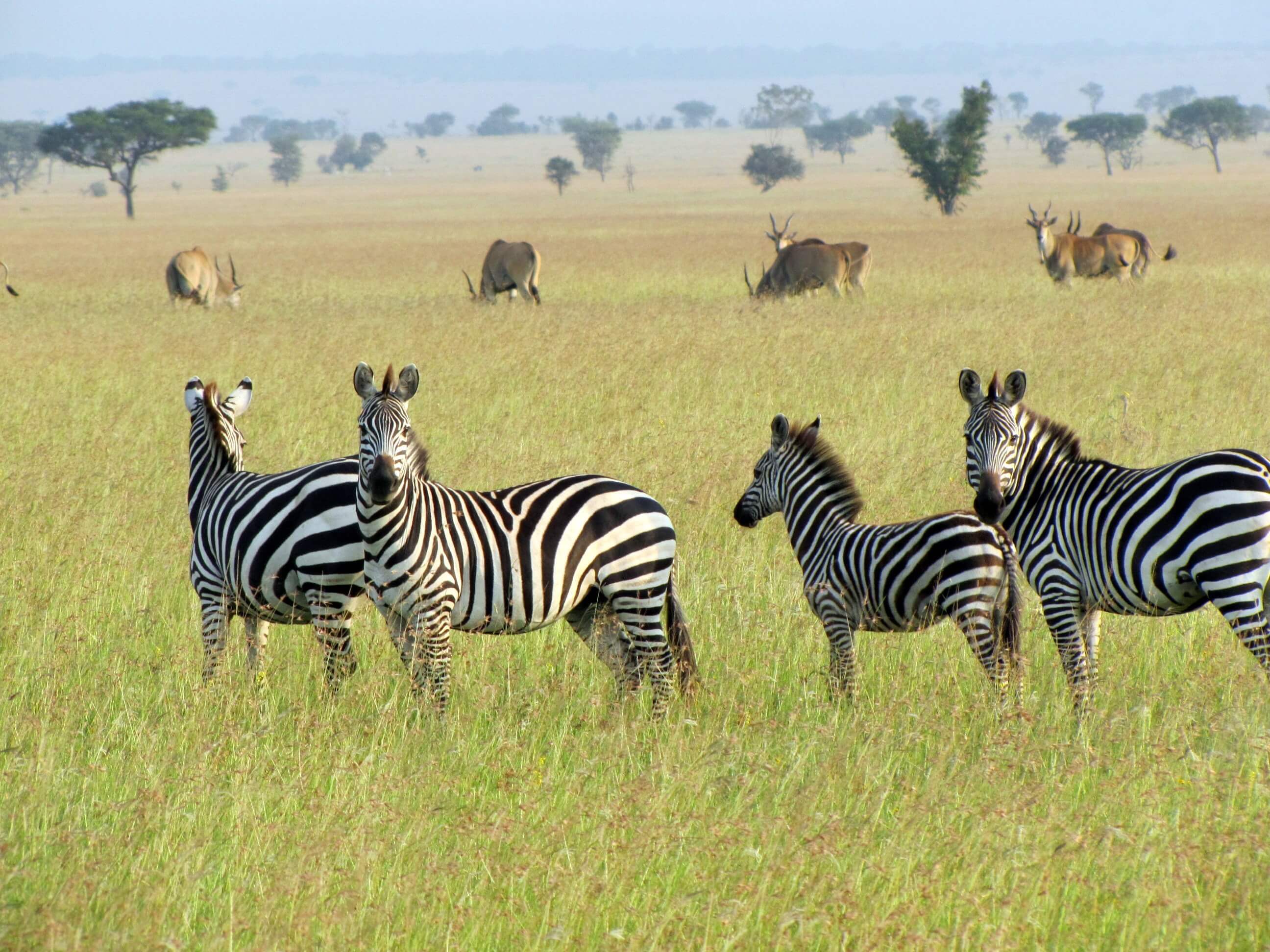Climate instability and human activity affect migration. According to monitors in the Serengeti, early signs show that this year the famous migration will not reach Kenya. More than two million herbivores will not cross the border or enter the Masai Mara this year.

One of the more interesting natural phenomena is migration. Birds migrate thousands of kilometers from breeding areas to nesting areas, insects migrate following the heat and food, as do fish and marine mammals. Recently, farmers have suffered from the migration of the locust, that grasshopper that gathers in flocks of millions and migrates on the "wings of the wind".
The phenomenon of migration that is perhaps the most famous and observed of all is the migration of ungulates in East Africa. About one and a half million wildebeests, joined by about half a million zebras and thousands of deer that migrate in an elliptical route that embraces the Serengeti reserves in Tanzania and the Masai Mara in Kenya. In the herbivores, hyenas and lions on the ground and eagles and vultures in the air create one of the most interesting, beautiful and famous natural sights.
Zoologists, tourists and nature lovers know that in the months of July and August the herds of the nomads raid the pastures of the Masai Mara reserve and its surroundings in Kenya, while the rest of the year they graze in the Serengeti in Tanzania.
The movement is dictated by the availability of rain that grows grass. Climate changes in recent years make the rain cycle less stable and predictable. It turns out that to this is added human activity, proactive and hidden hunting activity, development of fenced agricultural areas around the reserves and tourist activity.
All these reasons cause negligible disturbances, but together a tangible disturbance is formed.
Climate instability and human activity affect migration. According to monitors in the Serengeti, early signs show that this year the famous migration will not reach Kenya. More than two million herbivores will not cross the border or enter the Masai Mara this year.
Experts in the Serengeti say that in recent years the Farsitans stay in the Masai Mara less and less time. Last year (2012) the migratory herds grazed in Masai Mara for only two weeks, instead of the usual two months. After two weeks the wildebeest herds were seen "rushing" back to the pastures in the Serengeti.

The reasons for the shortening of the stay are mainly increasing human activity (including tourism), with the greater danger being the invasion of the Maasai herds into the reserve. These are the words of the chief inspector of the Serengeti, who mentions that a survey conducted by the "Zoological Society of the University of Frankfurt (FZS)" warned of the imminent change in the wildebeest's migration cycle. The survey editors predicted the change mainly because of the climate changes that cause changes in the rainfall cycle. The change observed a year ago happened all at once and surprised the reserve inspectors and the tour guides, and in the end, caused considerable financial losses.
According to what is seen in the field, the herds are extending their stay in the southern Serengeti and the conservation area of Ngorongoro. An extension of stay that will mean that the herds will not reach the north. Usually the crossing of the border is in July, but based on the location of the herds now and the distance they will have to travel - the reserve inspectors estimate that when the traditional time comes when the herds cross into the Masai Mara, they will still be far away and therefore the round of migration will be shortened and will go wrong. For the attention of those planning to visit the Kenyan reserves in the coming months.
About three years ago I wrote "Lament for Heaven" I didn't think and I certainly didn't think that the prophecy would come true so quickly.

7 תגובות
animal lover
You're right about this. The main reason for extinction is simply the number of people in the world and our environmental impact - deforestation, drying up swamps, fishing, air pollution, pollution of water sources, hunting and so on.
And it didn't start now - the extinction of the large mammals in America happened 12000 years ago, the extinction of the dodo, the moa and species of giant deer a few hundred years ago and so on....
But not everything is because of global warming, of course we are much to blame.
animal lover
We are in an era of extinction where the rate of extinction is no different than that which wiped out the dinosaurs 65 million years ago.
The number of extinct species infinitely exceeds the number of thriving species.
Avi Blizovsky
It is also known that some species become extinct and some vice versa. Will there really be a current extinction of species - we have long since become accustomed to them?
Animal lover, we are in the midst of such an era.
Does this mean we are before the age of massive extinction?